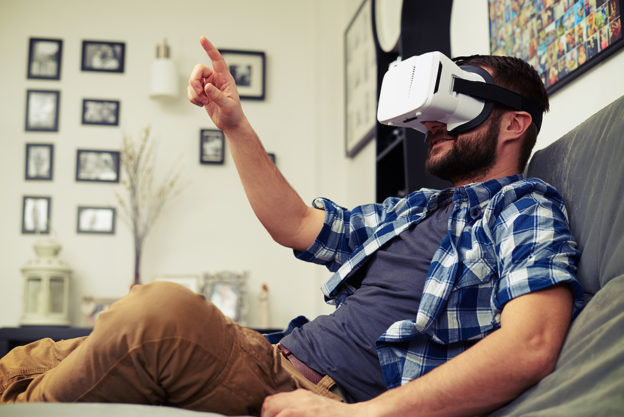Video games are an enjoyable pastime for many people. They enjoy spending time testing their skills against other players or against the computer. The video games are sought out by users as a means to release tension.
Vanderbilt University Researcher Working on Virtual Reality Therapy
A researcher at the Vanderbilt University is using video games as part of an unusual therapy being used to help drug addicts get a firmer hold on reality. Noah Robinson is a graduate student who is leading a group with the University’s Hollon Research Group conducting a scientific study to quantify whether this therapy can help addicts. (There are already anecdotal accounts that it is helpful.)
The therapy works by immersing the addict in a virtual world made up of abstract shapes and swirls of color. It isn’t just some type of fantastic treat for the eyes, though. It also includes a layer of psychological principles. The idea of using the virtual reality (VR) therapy is to teach users the skills necessary to separate themselves from the negative emotions and cravings that provide the fuel required to feed an addiction.
The therapist appears in the virtual world as a cartoon avatar, and the addict can communicate with the therapist through the virtual reality headset during sessions. The two of them can “walk” into a separate room for a talk therapy session.
VR Tool for Trying Out New Skills in Recovery
This rehab tool also lets addicts “try out” the skills they are learning in therapy. For example, the virtual reality headset can allow a recovering alcoholic to virtually walk into a bar or a party and practice turning down a drink. Afterward, the recovering alcoholic and his therapist can discuss whether it felt easy or hard to say, “No” when offered alcohol and talk about strategies for handling a similar situation in the “real” world.
The advantage to using virtual reality therapy for clients in treatment for drug addiction is that the distraction of the technology separates them from their fears and anxieties. As a result, the messages from therapy are easier to absorb.

